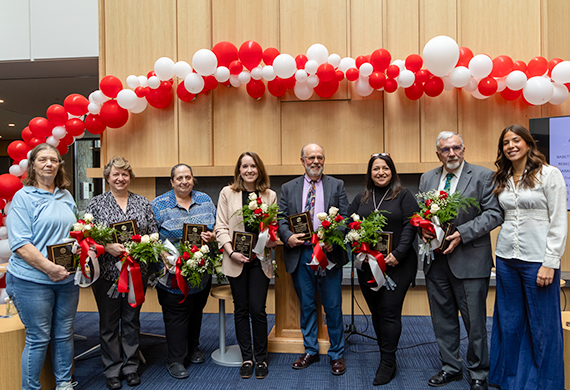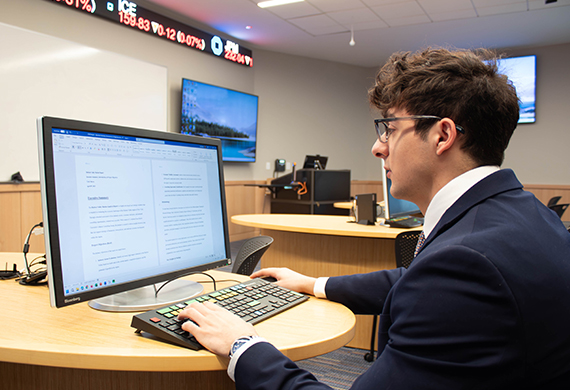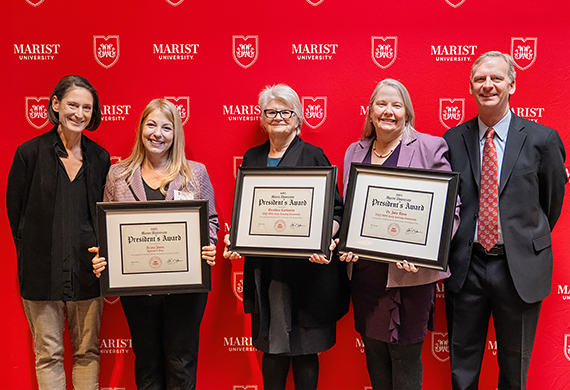Dr. Kravchuk Appointed to SUNY Maritime College Council; Molding the Next Generation of Educators

August 24, 2021—Throughout her career, Dr. Deborah Kravchuk, Adjunct Professor of Education at Marist College, has molded the next generation of educators through her unique hands-on approach, with a focus on making STEM a topic of interest for all. Over 40 years after graduating in the first class of women accepted, Kravchuk will serve on the SUNY Maritime College Council where she can continue her work mentoring female cadets, all while continuing to mold the next generation of educators at Marist.
Graduating from SUNY Maritime with a degree in Dynamic Meteorology and Physical Oceanography in 1978 as part of the first class of women accepted, Kravchuk began her career at the Sperry Corporation as the only female field engineer. Following the birth of her daughter, Kravchuk started her career in education and has inspired students and educators to pursue a career in STEM ever since.
A Focus on the Next Generation
Having taught elementary school through master's level courses, Kravchuk’s primary focus is for her students to leave with a genuine interest in science and prepare future educators to enter the STEM field. Across the nation, educators specializing in Science, Technology, Engineering, and Mathematics are in high demand, especially in New York State.
Kravchuk has one message when a student or educator walks into her classroom, something she’s planning to change one student at a time. “Being here at Marist, I have the opportunity to get people interested in science, which is how, when a kid walks into your classroom, the first thing out of their mouth is ‘I don't do science,' or 'I don't know'. And it makes a lot of people afraid of it. But it's nothing to be afraid of. Because Science is everywhere,” Kravchuk said.
Dr. Carol Rinke, Associate Professor of Education and Assistant Dean for the School of Social and Behavioral Sciences, credits Kravchuk’s experience and attitude towards fostering the next generation of educators, making her stand apart in the education field.
“The Marist Education Programs are so lucky to have a person with Deborah’s expertise and background working with our future teachers. She has brought a really valuable perspective to teaching science and math to both our Childhood and our Adolescence candidates, such as introducing them to technologies they will see in today’s classrooms, inspiring them with hands-on and inquiry-based exercise, and encouraging them to think about their lessons from the lens of the student as well as the parent,” Rinke said.
Starting her teaching career at a school specializing in dyslexia, Kravchuk, a dyslexic herself, forged her hands-on teaching method, something she has been bringing throughout her career. “I found that there were certain skills that you could use to help kids like hands-on multi-sensory stuff. When I didn't have a lot of what I was in high school, you know, it was the teacher talking to you taking notes. And I liked the hands-on, and I saw that the kids were engaged.”

Having taught for years in public and private school systems, Kravchuk was among the 104 teachers in the inaugural New York State Master Teacher Program. This program provided math and science teachers across the state with professional development.
“You would have professional development opportunities, and you would have the opportunity to go to conferences and to speak at other schools,” Kravchuk said.
Through the New York State Master Teacher Program, Kravchuk could advance her commitment to helping girls grow within the STEM field. “The conversation started with how are we going to make sure that girls get a fair shake when it comes to science,” Kravchuk said. “It was our goal to do something for the girls.”
With other members of the first class of the Master Teacher Program, Kravchuk began Girl Rock STEM, a program dedicated to having middle school girls interested in STEM come and hear from practicing scientists and do real science. “The first year, we had 120 girls. They came in and did three one-hour classes. That first year, we had 15 offerings, the second year, we got up to 250 girls, each girl was able to choose from 35 offerings which included lunch and a guest speaker. And it just kept growing after that,” Kravchuk said.
In the end, Kravchuk hopes she can inspire the next generation of educators and allow more women to make careers in the STEM field. “The educators in my classes are top-notch; they're going to make awesome teachers. And that's what we need in this country. We need excellent teachers.”



